Filter by
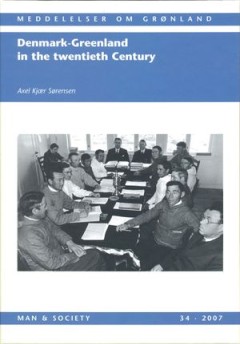
Denmark-Greenland in the twentieth century (Vol. 341)
This book traces Danish-Greenlandic relations over 100 years and is the first publication to cover the period 1900-2000. The main trend is the development from a colonial situation in 1900 with a state owned company runnig nearly all business to an open economy with steadily growing selfgovernment for Greenland short of full independence. The Danish policy can be described as benevolent, but fi…
- Edition
- -
- ISBN/ISSN
- 9788763530705
- Collation
- -
- Series Title
- -
- Call Number
- 320 SOR d

Red Scare : FBI and The origins of Anticommunism in The United States
The anticommunist crusade of the Federal Bureau of Investigation and its legendary director J. Edgar Hoover during the McCarthy era and the Cold War has attracted much attention from historians during the last decades, but little has been known about the Bureau's political activities during its formative years. This work breaks new ground by tracing the roots of the FBI's political surveillance…
- Edition
- -
- ISBN/ISSN
- 9788763500128
- Collation
- -
- Series Title
- -
- Call Number
- 320 SCH r
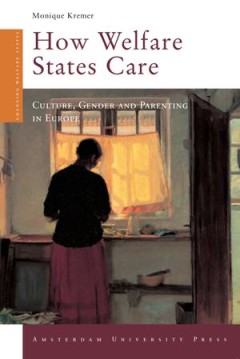
How Welfare States Care
A social revolution has taken place in Europe. Women's employment patterns changed drastically the last decades. But they are still different across Europe. Welfare state scholars often presume that diversity and change in women's employment across Europe is based on financial (dis) incentive structures embedded in welfare states. This book shows, by in depth analyses of women's (and men's) emp…
- Edition
- -
- ISBN/ISSN
- 9789053569757
- Collation
- -
- Series Title
- -
- Call Number
- -

Gender, Generations and the Family in International Migration
Family-related migration is moving to the centre of political debates on migration, integration and multiculturalism in Europe. It is also more and more leading to lively academic interest in the family dimensions of international migration. At the same time, strands of research on family migrations and migrant families remain separate from - and sometimes ignorant of - each other. This volume …
- Edition
- -
- ISBN/ISSN
- 9789089642851
- Collation
- -
- Series Title
- -
- Call Number
- -
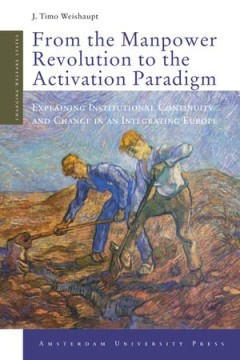
From the Manpower Revolution to the Activation Paradigm
This book examines the origins and evolution of labor market policy in Western Europe, while paying close attention to the oeCD and the European Union as proliferators of new ideas. Three phases are identified: (a) a manpower revolution phase during the 1960s and 1970s, when most European governments emulated Swedish manpower policies and introduced/modernized their public employment services; …
- Edition
- -
- ISBN/ISSN
- 9789089642523
- Collation
- -
- Series Title
- -
- Call Number
- -
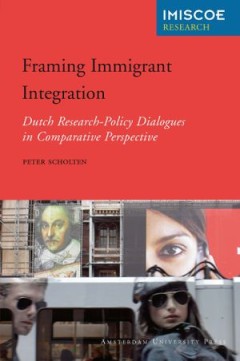
Framing Immigrant Integration
Debates on immigrant integration are often caught up in what academics and politicians like to call 'national models of integration'. Researchers and policymakers long for common ground. In the Netherlands, their symbiosis is fed by multiculturalism, something for which Dutch society has long been seen as exemplary. Still, the incorporation of migrants remains one of the country's most pressing…
- Edition
- -
- ISBN/ISSN
- 9789089642844
- Collation
- -
- Series Title
- -
- Call Number
- -
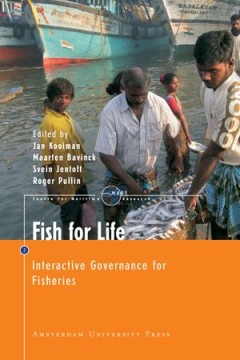
Fish for Life
One billion people around the world rely upon fish as their primary-and in many cases, their only-source of protein. At the same time, increasing demand from wealthier populations in the U.S. and Europe encourages dangerous overfishing practices along coastal waters. Fish for Life addresses the problem of overfishing at local, national, and global levels as part of a comprehensive governance ap…
- Edition
- -
- ISBN/ISSN
- 9789053566862
- Collation
- -
- Series Title
- -
- Call Number
- -
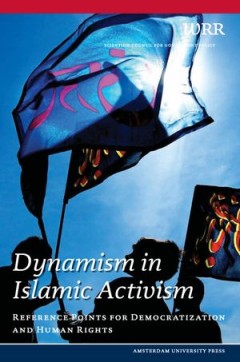
Dynamism in Islamic Activism
The increased tensions surrounding radical Muslims and radical movements in the political Islam are not only manifested in the Western countries but also in the Muslim world itself. Tendencies and political movements that undermine the status quo have proliferated since the 1970s. They plead for a far-reaching islamization: funding politics, law and society on Islamic foundations. This study of…
- Edition
- -
- ISBN/ISSN
- 9789053569184
- Collation
- -
- Series Title
- -
- Call Number
- -
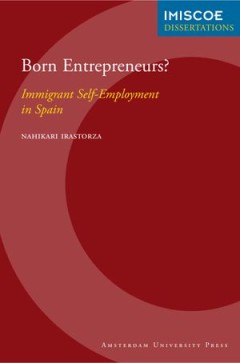
Born Entrepreneurs?
Are immigrants more enterprising than natives in Spain? How successful are migrant entrepreneurs compared to those who start businesses in their country of birth? With the growth of migration worldwide, questions such as these are garnering the attention of economists, policymakers and scholars. Born Entrepreneurs? asks how foreignness affects an immigrant's ability to launch and to grow a succ…
- Edition
- -
- ISBN/ISSN
- 9789089642431
- Collation
- -
- Series Title
- -
- Call Number
- -
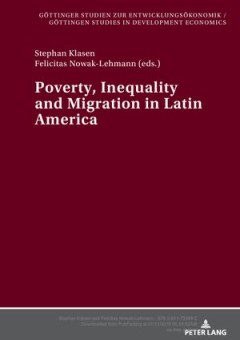
Poverty, Inequality and Migration in Latin Amerika
The causes and consequences of high inequality in incomes, assets, and many aspects of well-being in Latin America have recently (re-)emerged as a central research and policy issue. However, many open questions remain that will be dealt with in the contributions to this volume. First, the linkages between growth, inequality, and poverty in Latin America need further clarification. More analyses…
- Edition
- -
- ISBN/ISSN
- 9783631573273
- Collation
- -
- Series Title
- -
- Call Number
- 320 POV p
 Computer Science, Information & General Works
Computer Science, Information & General Works  Philosophy & Psychology
Philosophy & Psychology  Religion
Religion  Social Sciences
Social Sciences  Language
Language  Pure Science
Pure Science  Applied Sciences
Applied Sciences  Art & Recreation
Art & Recreation  Literature
Literature  History & Geography
History & Geography